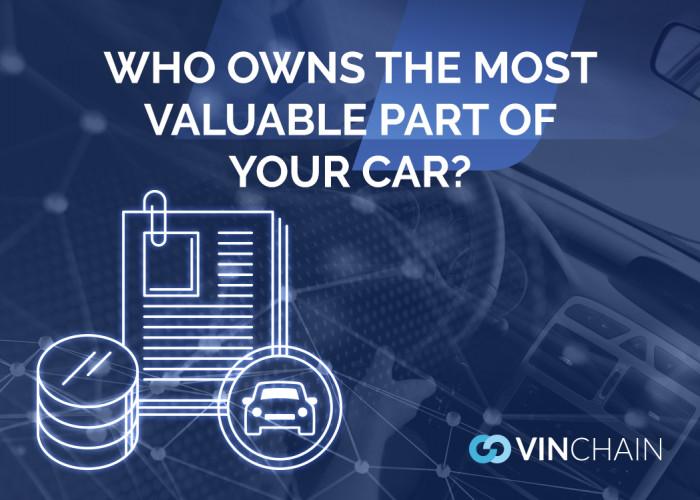Who owns the most valuable part of your car?

What is the most valuable part of your car? Most people will pop the hood and tell you it’s the fuel-efficient motor, the powerful turbo, or the lightning fast shifting gearbox. The truth is that it’s none of these. In fact, you won’t find under the hood at all, because what’s the most valuable part of your car is data.
Smarter cars, bigger data
Cars have been collecting data for years. Everything from data on fuel injection, emissions, anti-lock braking, airbags, engine performance, and since the introduction of on-board navigations systems in the 1990s, location data. Even before cellular and data connections, this data was accessed through on-board diagnostic devices, or OBDs. Technology has made cars smarter, and according to Niranjan Manohar from marketing consulting firm, Frost & Sullivan, some modern cars contain more than 200 data points. In addition to ‘traditional’ data, these sensors also collect data such as driver behavior, entertainment preferences, road obstacles, fuel economy, and even whether you’re dozing off behind the wheel, or not paying attention! This is an insane amount of data, some of it personal, that is only going to increase as cars get ‘smarter’.
A data goldmine
Of these 200 data points, says Manohar, more than 140 have potential business applications. The marketing potential is immense, and analysts predict vehicle data to be worth between $450 billion and $740 billion by 2030. This includes everything from automated parking payments, car finance based on previous driver behavior, accident reports and lower insurance premiums for good driving, service and repair information and reminders for dealerships, vehicle history reports for car sales, to name but a few. As technology develops, data points increase, and businesses catch on to the revenue potential of this data, the applications will only grow.
Who owns the data?
Data ownership has always been a sticky and hotly debated topic, and a tug-of-war exists between vehicle manufacturers and consumer watchdogs concerning who should own the massive amount of data a vehicle collects. Some manufacturers let new owners sign contracts that stipulate that they, the manufacturer, owns the data, and that they can essentially do with it as they please. This means selling it to third parties such as marketers, insurance companies, and other interested stakeholders. Right now there’s no clear answer, but opinion is growing that ultimately the data should belong to the owner of the vehicle. Vehicle data startups like VINchain is also pushing for owner-owned data with its blockchain based marketplace where vehicle owners own the data, and get rewarded for selling it to stakeholders. The concept is quickly starting to take off.
Privacy & safety concerns
Vehicle data can be used for the driver’s safety and convenience, but there are also concerns over privacy and security of personal data. Ever since the Cambridge Analytica Facebook data scandal, consumers have been paying more and more attention to data privacy, and with that, security. Since a car can also collect personal information, one of the key concerns is anonymity, especially when it comes to security. Vehicle manufacturers and some stakeholders that use the data claim that they anonymize data, but even here are concerns, since these companies don’t reveal how they actually go about doing this.
Of course wherever data is collected and transmitted, there is also the potential for unlawful access to your data, such as in the event of a hack. These are critical aspects that need to be ironed out as soon as possible in order to gain consumer confidence. The blockchain technology that a company like VINchain employs covers both these bases. A major feature of blockchain technology is smart contracts. These allow control of data by those that own it, and can be set up to allow access only to authorized individuals or stakeholders. This keeps the data supplied to the chain both anonymous and secure at the same time.
What does the law say?
Data ownership has also come to the attention of lawmakers around the world, predominantly in the United States and the European Union (EU). While a consensus is yet to be reached in the US regarding who owns the data, what can be done with it, and how to keep it secure, major strides have been made in the EU with the introduction of the General Data Protection Regulation, or GDPR, in 2018. This regulation awards vehicle owners certain rights in terms of the data their vehicles collect, as well as requiring car makers to implement measures to protect owner data and require consent to use the data. This is a major victory for consumers, and there is hope that the US will follow suit soon.
Whether you’re driving an old hatchback, a brand new sedan, or a racy sport car, your vehicle is constantly collecting immense amounts of data. This data has incredible revenue potential and it only makes sense that you, the owner, should share in the profits.










Join the conversation on social media: